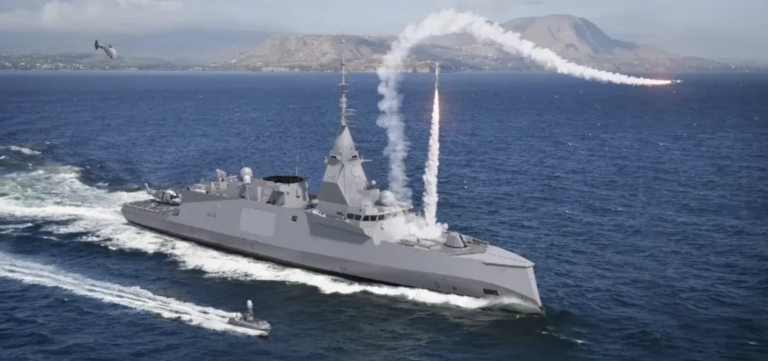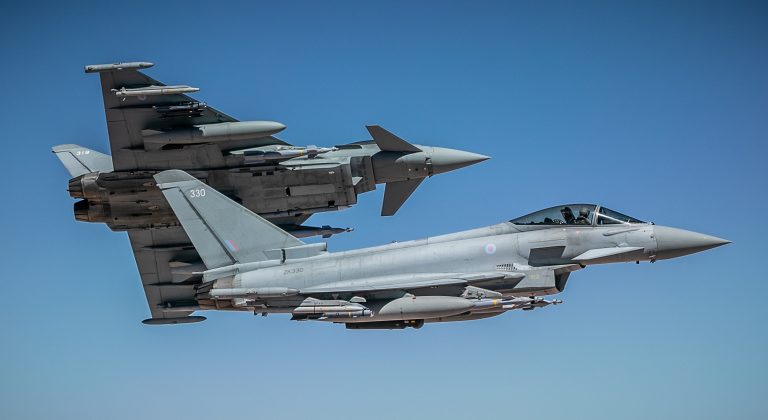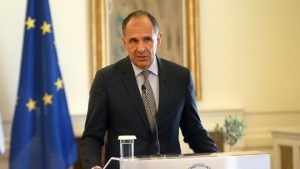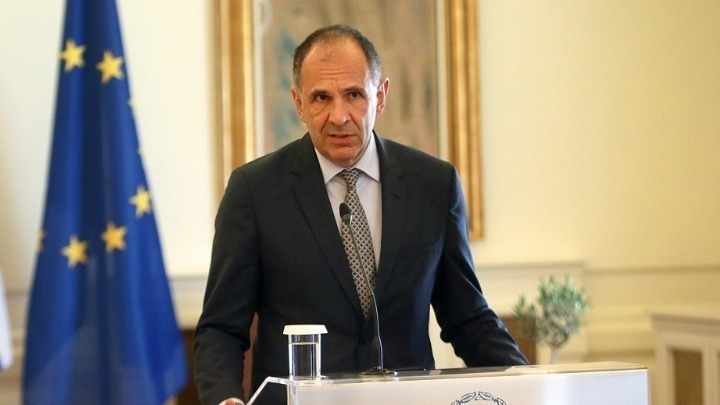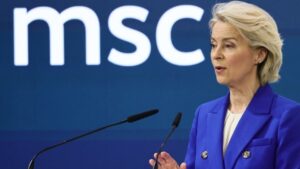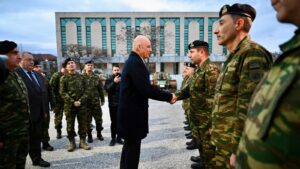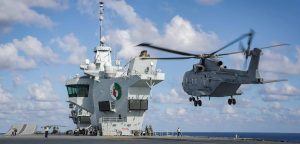The next milestone following Prime Minister Kyriakos Mitsotakis’ visit to Ankara is September in New York, where he will meet with Turkish President Recep Tayyip Erdogan on the sidelines of the UN General Assembly meetings, Greek Foreign Affairs Minister George Gerapetritis said in an interview published Sunday.
Speaking to ‘Real News’ newspaper, Gerapetritis added that both leaders will also participate in the NATO Summit Meeting in Washington, and may meet there as well.
“The next milestone is the High-Level Cooperation Council (HLCC)” of Greece and Türkiye, the minister said. Mitsotakis and Erdogan agreed to promote the meeting of HLCC for the end of the year in Ankara, while by September there will be another round of political dialog, the positive agenda, and Confidence-Building Measures, in order to prepare for more of positive and concrete results, he noted.
“It is particularly significant that a normalcy is developing in our relations with Türkiye: We meet occasionally, these meetings do not necessarily always lead to a very specific, great result, and we can now even disagree, without however creating tension,” the Greek FM said.
Referring to the issue of delimiting the continental shelf and the Exlusive Economic Zone (EEZ), Gerapetritis called it “a complicated technical issue with a great historical weight” that has preoccupied 64 rounds of exploratory talks without any substantial result. “Despite the value in itself of experiencing a calm period in the Aegean without violations of national air space and large migrant flows, the final resolution of the continental shelf and EEZ issue would be of outstanding importance for a long-term and viable calmness in our region,” Gerapetritis underlined.
Greece’s intention, he noted, is “to discuss these issues when the circumstances are right. The climate of sincerity and mutual understanding must be absolutely established, particularly through the consolidation and full application of the positive agenda agreements.”
Although basic disagreements on key issues have not been resolved, he added, “In the Greek-Turkish dialog we shall move ahead step by step […] in order to first of all build upon the things that unite us.” Furthermore, “It would be ideal to be able to reach a joint agreement on the delimitation. At any rate, what always remains is the path to a co-signatory agreement to submit this difference to international jurisdiction.”
North Macedonia
Among other issues, Gerapetritis referred to the North Macedonia developments and domestic political pressure and suggested that the country’s citizens “would not want to jeopardise the relationship with Greece and the country’s European prospects.” In reality, he said, Greece wished to submit the Prespa Agreement memoranda to the Greek parliament for ratification because Greece supports North Macedonia’s accession to the European Union, but “this cannot happen until there is a full and tangible compliance with the Prespa Agreement,” as the agreement itself requires.
In terms of the issue concerning the detained mayor-elect of Himare Fredi Beleri, Gerapetritis said that Greece did not initiate the issue. Although it also supports Albania’s accession to the EU, the Greek FM stressed it is unthinkable to have less than full application of the European acquis.
Referring to the Cyprus issue, FM Gerapetritis said, “We agree with the Cyprus government that the improvement in Greek-Turkish relations can only bring positive results for the start of dialog on the Cyprus issue.” Greece’s stance is clear, he added: “The two sides must talk on the basis of the UN Security Council resolutions for a bizonal, bicommunal federation. Dialog must begin and a productive discussion follow that will lead us to a viable and beneficial resolution of the Cyprus issue in the framework of the resolutions.”

